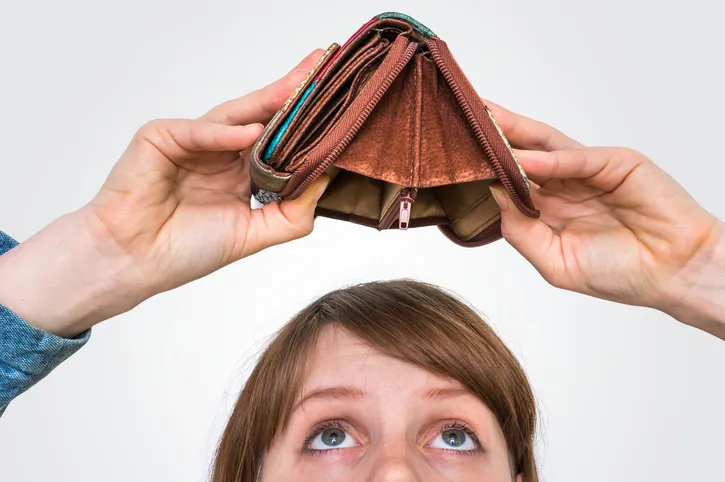Florida Banned Social Media For Those Under 14, Should North Carolina Follow?
Should North Carolina ban social media for kids? It’s a fair question and one that will get more discussion in the coming days. This is because yesterday Governor Ron DeSantis signed a bill, referred to as HB 3. HB3 specifically prohibits children under the age of 14 from opening social media accounts. Furthermore, 14- and 15-year-olds would only be able to become account holders with parental consent.
“Social media harms children in a variety of ways,” said Governor Ron DeSantis in a press release from his office. “HB 3 gives parents a greater ability to protect their children. Thank you to Speaker Renner for delivering this landmark legislation.”
Should North Carolina Ban Social Media For Kids Like Florida?
And I wholeheartedly agree with this. Bullying is notoriously easier online and doesn’t stop when school ends. Social media can lead to anxiety and other mental health struggles, which are running rampant in teens and young adults these days. Additionally, it’s a sad reality that photos posted online of children can also get into the hands of the wrong people. Plus kids should be kids, they should be outside and around other kids not in front of a screen. The downsides far outweigh the benefits from my perspective.
Specifically, HB3 accomplishes the following things in regards to social media:
- Prevents a minor who is younger than 14 years of age from becoming a social media account holder.
- Empowers parents to decide whether 14- and 15-year-olds can have a social media account.
- Protects the ability of Floridians to remain anonymous online.
Other language in the bill requires pornographic or sexually explicit websites to use age verification. This is obviously to prevent minors from accessing sites that are inappropriate for children. Another thing that should not be controversial at all in my opinion.
“The internet has become a dark alley for our children where predators target them and dangerous social media leads to higher rates of depression, self-harm, and even suicide,” said House Speaker Paul Renner in the press release. And honestly, if it saves even one life it will be worth it.
Will North Carolina ban social media accounts for kids? We shall have to wait and see. But I think you know where I stand on this. And if you have a compelling argument on why you think kids should have access to social media at a young age, well I’d be interested in hearing it.
You can read the full press release on Florida’s HB3 here.
Top 5 Signs You May Have 'Celebrity Worship Syndrome'
Many of us are fans of certain celebrities. We enjoy keeping up with our favorite celebs by watching a movie they are in or supporting their music. Then you have the superfans, who need to have every album on vinyl or every movie on Blu-ray. They might even have a closet full of their merch. Then you have the next, more obsessed level and this is where it gets weird. These are the people who will bid to buy their favorite famous person’s toothbrush on eBay.
People have been idolizing celebrities for years. This is especially true with artists/bands like Beyoncé, Taylor Swift and BTS. But it’s a phenomenon that has existed for decades: Michael Jackson and Madonna had their obsessives. There was “Beatlemania” in the ’60s. In the ’50s, kids were obsessed with Elvis Presley.
The internet and social media have taken celebrity worship culture to new levels by providing constant access to content about their favorite pop stars and movie stars.
Any person who is “in the public eye” can be the object of a person’s obsession. This includes authors, politicians, athletes, and journalists, among others. Some research suggests they are more likely to be someone from the world of television, film, and music.
Since they’re scrolling celebrities’ “personal” social media feeds, fans can more easily get overly invested in their idols’ personal lives. This is depicted in several documentaries like the crowds of screaming, crying superfans depicted in Billie Eilish’s documentary or Eminem’s co-produced “Stans” documentary based on superfans.
Celebrity Worship Syndrome
According to Psychology Today, “Celebrity worship syndrome has been described as an obsessive-addictive disorder where an individual becomes overly involved and interested (i.e., completely obsessed) with the details of the personal life of a celebrity.”
The term “celebrity worship” was first coined by researchers Lynn E. McCutcheon and John Maltby. Their 2003 study, a clinical interpretation of the attitudes and behaviors associated with celebrity worship, used the Celebrity Attitude Scale and the Revised Eysenck Personality Questionnaire to categorize celebrity worship syndrome.
What Does It Look Like?
PsychCentral reported that celebrity worship can be mild in some cases. For example, you may name your firstborn child after your celebrity idol or change the way you dress based on your favorite celebrity. The obsessive-addictive properties of celebrity worship can also be presented in more intense ways.
This includes having cosmetic surgery to look like your favorite celebrity. Then there’s the more extreme display of celebrity worship. This can take the form of harassment, stalking, or otherwise inappropriate attempts at interaction.
Take a look at some of the top signs you may have celebrity worship syndrome below.
Melanie Day is a graduate of North Carolina State University. She has worked for Beasley since 2012 in a variety of behind-the-scenes roles in both digital and promotions. Melanie writes about a diverse range of topics some of her favorites include travel, restaurants, Taylor Swift, and college athletics. When not at work you'll find her at a country concert or NC State sporting event.






